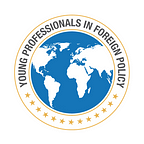Shrinking Space in the Name of Countering Terrorism: Why the United Nations Must Deliver on Civil Society Commitments
By Junko Nozawa
Civil society actors — communities, victims’ rights groups, religious, and other authorities that follow traditional customs — have long been recognized as valuable partners in violence prevention and conflict resolution efforts. Recognition for their contributions to the field of preventing and countering violent extremism (P/CVE) and terrorism has been more muted, despite the critical role that a vibrant and active civil society plays in enhancing community resilience to violence, supporting accountability and transparency in government, advancing the rule of law, and achieving the purposes and principles enshrined in the U.N. Charter. While governments bear the primary responsibility for their nations’ security, local authorities, practitioners, and civil society organizations are often well-placed to prevent and respond to localized threats posed by violent extremism in their communities.
Government responses to terrorism and violent extremism have been negatively correlated with a shrinking space for civil society. In many contexts, initiatives to involve civil society actors to prevent and counter violent extremism have instrumentalized their role in conducting intelligence- and information-gathering for security agencies. Such efforts overwhelmingly target marginalized populations and further undermine the trust and the legitimacy of those initiatives. Provisions that restrict freedoms of expression, opinion, association, assembly, and religion have been invoked to target civil society activities, despite a lack of evidence that these restrictions reduce the number of terrorist attacks. These measures have also been occurring against a backdrop of peaceful activism being increasingly repressed in most parts of the world.
In our upcoming ‘Blue Sky’ report, which assesses global efforts to counter terrorism, we argue that the United Nations needs to take its commitments to civil society seriously and uphold its “do no harm” principles of engagement in the field. The global political landscape places renewed attention on the United Nations’ role in promoting and protecting universal human rights. Moreover, U.N. mandates across counterterrorism and P/CVE architecture cannot be fulfilled without the meaningful and sustained engagement of civil society. This approach is in line with the Secretary General’s 2020 Call to Action for Human Rights and the U.N. Office on Counter-Terrorism’s Civil Society Engagement Strategy, which focuses on drawing expertise from civil society in three key areas — gender, youth, and human rights — across capacity-building efforts in counterterrorism and P/CVE.
To date, U.N. agencies’ responses have varied widely in the degree to which they prioritize, protect, and realize civil society engagement as a core pillar of their work. The United Nations Development Programme has nurtured a vast network of civil society entities across its programming, including in P/CVE. The Office of the United Nations High Commissioner for Human Rights regularly communicates with a network of over 1,000 civil society organizations and issues statements condemning violations against civil society. The Security Council’s Counter-Terrorism Committee Executive Directorate’s Global Research Network, now five-years-old, hosts regular meetings and draws on evidence-based research from non-governmental sources to integrate into its activities and analytical products.
However, civil society engagement in high-level discussions on counterterrorism and P/CVE remains the exception rather than the rule at Turtle Bay. In policy discussions, this form of engagement is often limited and tokenistic, even though civil society is a key stakeholder in the development of inclusive, multidisciplinary, and holistic National Action Plans on P/CVE. Many point to the U.N. Office on Counter-Terrorism (UNOCT)’s funding structure as reinforcing this approach and criticize the “pay to play” nature wherein a select number of donors, notably Saudi Arabia and Qatar, can influence policy priorities and practices. Member states may fund activities in partnership with the UNOCT, as was the case with regional high-level conferences hosted by Belarus and Budapest. It is common practice for host governments to screen and pre-approve the participation of civil society actors, making the host selection a critical consideration that should feature prominently in the UNOCT’s civil society risk analysis, do no harm approach, and mitigation strategy. Egypt’s recent announcement that it is working with the UNOCT to host the next regional conference highlights this issue, given the country’s poor human rights record and reports of reprisals against human rights defenders who have cooperated with the United Nations.
Going forward, the United Nations and its member states will need to do more to proactively engage and support civil society as part of its counterterrorism and P/CVE policy discussions and programmatic efforts. This will require transforming the way it works with civil society organizations to be more consultative and to reflect on their views and experiences. This should also involve civil society’s input and participation in informing policy priorities and program design, implementation, monitoring, and evaluation. U.N. leadership should advocate, internally and externally, to integrate civil society actors and allocate adequate resources and technical assistance to support their activities.The upcoming review of the U.N. Global Counter-Terrorism Strategy in 2021 provides member states with an opportunity to affirm the importance of a robust and independent civil society. Without meaningful civil society engagement, the U.N. system’s counterterrorism policy, coordination, technical assistance, and advocacy risk causing more harm than good.
Junko Nozawa is a Senior Legal Analyst for the Global Center on Cooperative Security, where she manages programming on criminal justice and rule of law and promotes rights-based approaches in capacity development. She holds a J.D. and LL. M. from Washington University in St. Louis and Utrecht University.
